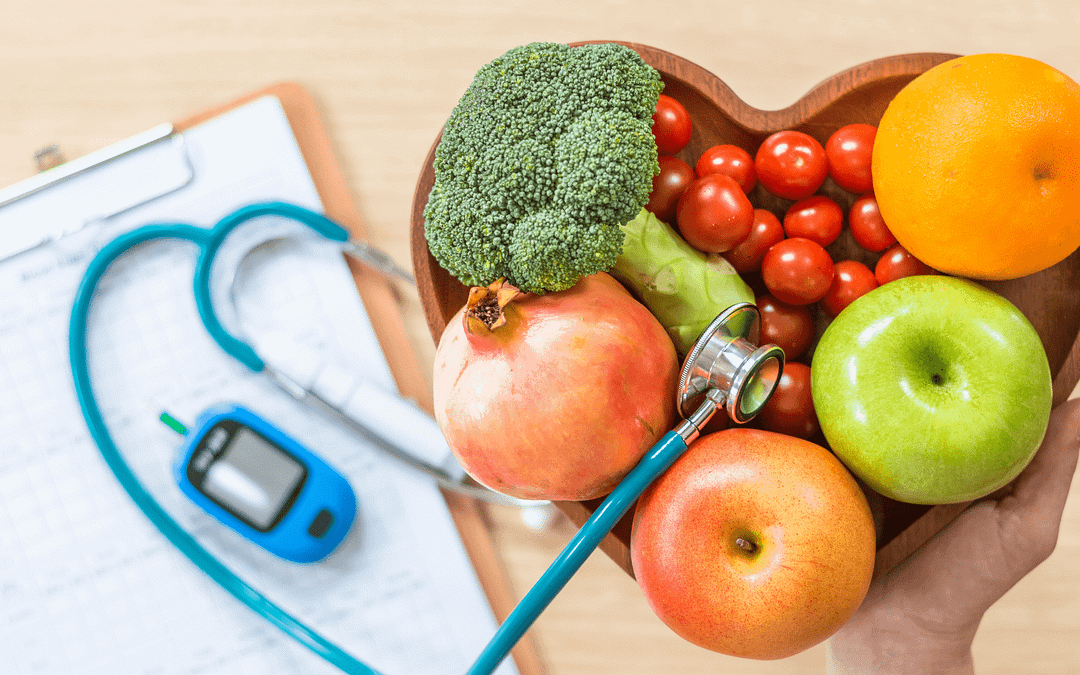March is National Nutrition Month which aims to raise awareness about the importance of maintaining a healthy and balanced diet, as well as offering advice on how to make informed choices. The food that we consume has a huge impact on not only our physical health, but also our mental health. Therefore, it is vital that we fuel our bodies with the essential nutrients it needs.
Most of us are prone to enjoying delicious treats like chocolate, crisps, and takeaways. Processed foods and food high in flours and sugar are highly addictive and stimulate the dopamine centres in our brain, which are associated with pleasure and reward. However, over-reliance of unhealthy food can cause inflammation throughout the body and brain, which may contribute to mood disorders, including anxiety and depression.
Many recent studies have identified the link between mental health and diet. One study found that individuals with a high intake of foods such as fruit, vegetables, fish and low- fat dairy products had a decreased risk of depression. In contrast, individuals with a high intake of foods such as processed meat, sweets and high-fat dairy products had an increased risk of depression.
It can be difficult to know what to eat, especially with rising food prices and the fact that healthier foods can be more expensive. Additionally, trying to maintain a healthy diet may be the last thing on our minds if we are struggling with our mental wellbeing. To help, we have developed a list of recommendations to help support and improve both your dietary habits and mental health.
Top Tips
Stay hydrated – Our hydration levels have a large impact on our wellbeing. Being dehydrated can impact our ability to concentrate or think clearly. Additionally, drinks which contain caffeine or alcohol may increase symptoms of anxiety and panic disorder. As a result, it is important to stay on top of drinking plenty of fluids, especially water. It may also be helpful to try and track your fluid intake by writing it down or using a reminder on your phone.
Eat your five a day – It may sound cliché but eating a range of fruits and vegetables can add a good range of nutrients to your diet which help to keep us mentally and physically healthy. Frozen, tinned, dried and juiced fruits all count towards our five a day and may be a cheaper alternatives to fresh fruit and vegetables.
Eat more foods that support healthy digestion – Sometimes our gut can reflect our mood. For example, if we feel stressed or anxious, this can make our gut slow down or speed up, which can lead to problems with digestion, such as feeling bloated or constipated. If your mental health is impacting your appetite, try some relaxation techniques or breathing exercises.
Plan your meals – When you’re feeling well and have more energy, it can help to plan ahead for times when you aren’t feeling yourself. Try making some extra meals and store them in the freezer for when you don’t feel like cooking. Additionally, there are many easy and healthy meals to cook when you are feeling unwell such as beans on toast or jacket potatoes.
Consume plenty of healthy fats and reduce processed snack foods – Sugar-filled snacks and drinks can lead to ups and downs in energy levels. Healthy fats, such as those found in fish, nuts, and avocados, are beneficial and important for brain function.
Make dishes that include foods from variety of food groups – The five main food groups are fruit and vegetables, starchy food, dairy, protein, and fat. Enjoying food from each of the five food groups will give you a fantastic mix of the best nutrients and vitamins. Protein is essential for the production of neurotransmitters, which are the chemicals that regulate mood and communication between brain cells.
Make cooking fun! – Instead of buying pre-made food, spend time cooking healthy meals from scratch. Who knows, this may become a new hobby!
Be mindful when eating – Pay attention to how you feel when you eat, and what you eat. One way to do this is to keep a food journal to gain insight into your eating patterns. For example, if you find you overeat when stressed, it may be helpful to write down your feelings. If you undereat, it may help to schedule five or six smaller meals instead of three large ones.
Eat regularly to keep blood sugar levels steady – Our blood sugar levels have a large impact on how much energy we have. Lower blood sugar levels may make us feel tired, irritable, or depressed. Eating regularly and eating foods that release energy slowly, such as wholegrain bread, cereal, brown rice, and brown pasta, can help to keep our sugar levels steady.
Overall, making small and gradual changes to your diet may have positive long-term impacts on your mental health. If you are concerned about how your diet is impacting your mental health, it is important to talk to a doctor or mental health professional. They can help you develop a treatment plan that includes dietary changes, as well as other therapies, if needed.
Useful Contacts
BEAT – Beat provides Helplines offering support and information about eating disorders no matter where you are in your journey – https://www.beateatingdisorders.org.uk/get-information-and-support/get-help-for-myself/i-need-support-now/helplines/
Mind Charity – Mind’s helplines provide information and support by phone and email – https://www.mind.org.uk/
YoungMinds – Provides advice and support to young people for their mental health, as well as supporting parents and carers – https://www.youngminds.org.uk/

